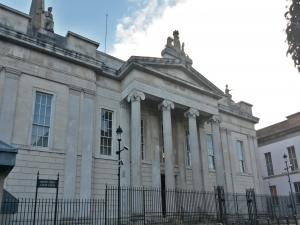
By David Young, PA
Former Celtic and Northern Ireland footballer Paddy McCourt insisted he is “definitely not guilty” when he appeared in court accused of sexual assault.
The 38-year-old, from Wheatfield Court in Muff, Co Donegal, appeared at Derry/Londonderry Magistrates’ Court via video-link from his solicitor’s office, charged in relation to an incident in a nightclub in the city last month.
He is charged with intentionally touching a woman in a sexual manner without her consent on January 30.
During the short first hearing before district judge Barney McElholm, a defence solicitor expressed concerns that another potential suspect who had been standing close to the victim at the time of the alleged assault has not yet been identified or spoken to by police.
At the outset of proceedings, McCourt, who was capped 18 times by Northern Ireland during his career, was asked if he understood the charge he was facing.
With his wife Laura sitting beside him, he replied: “Yes, but definitely not guilty.”
A police constable told the judge he could connect the accused to the charge.
Under questioning from defence solicitor Ciaran Shiels, the officer confirmed to the court that McCourt, who also counts Barnsley and Brighton among his former clubs, had co-operated with police during interview.
Mr Shiels said a forensic line of inquiry is being pursued by police and asked the constable to provide a timeline for its completion.
The lawyer suggested it had been inappropriate to charge his client prior to the forensic evidence being analysed.
In reply, the officer told the judge: “Your worship is well aware of how long forensic admissions take, that could be months.”
But he stressed that forensics are not the sole basis of the police case.
“The investigating officer was of the opinion that there was sufficient evidence to charge without any forensic evidence,” he said.
Mr Shiels pressed the officer on whether another person standing in close proximity to the injured party had been traced.
“Police agreed that that person was a potentially crucial witness and potentially also a suspect,” Mr Shiels told the officer.
“Can you confirm if that person has been spoken to yet by police because they hadn’t been identified at the last time of contact?”
The constable replied: “I believe there’s a couple of further witnesses that need to be spoken to to see if they’re willing to come forward, your worship.
“Whether that’s been done yet at this early stage, I can’t say.”
When Mr Shiels suggested the individual could be a suspect, the officer responded: “I’m not aware of another suspect.”
The solicitor said uncertainty around the unidentified other person and the potentially lengthy timeline for DNA analysis underlines his contention that the decision to charge McCourt had been “premature”.
Addressing the judge, Mr Shiels said: “This case could easily be in front of you for months before we know where we are in that regard (on forensics) and there was another individual, your worship, who also had to be spoken to.
“It’s almost a month that’s passed and it would appear that person hasn’t even been brought in to be spoken to.”
Judge McElholm said the issue around a decision to charge is not a matter for him to adjudicate on, but he raised concern around whether the other person in the nightclub has yet been identified.
“I’m conscious of the fact these things can take a lot of time, which is not good for anyone involved in the matter,” he said.
“But obviously there was another person in the vicinity.”
The judge added: “There was another person standing in the vicinity and I think it’s very important that that person be identified and be spoken to.
“As to what capacity they’re spoken to in, that’s a matter for the police.
“Certainly according to what I’ve seen, it appears there was another person there, so one would have thought it would be very important for that person to be identified first of all, and then spoken to, so at the moment I think the defence are entitled to know that that is being pursued.”
Mr Shiels replied: “Police have to investigate all reasonable lines of inquiry, not just those that point towards guilt, but away from it. That’s the code that we’re all familiar with. That’s why we’re anxious to find out from police what they’ve done.”
The judge said there was not much he could do to progress the issue at this stage but he reiterated that it is “very important that that person is identified and spoken to as soon as possible”.
He adjourned the case until March 23.
Mr McElholm said at the next hearing he would like to receive an update on the efforts to locate the other individual and on progress with the forensic inquiries.


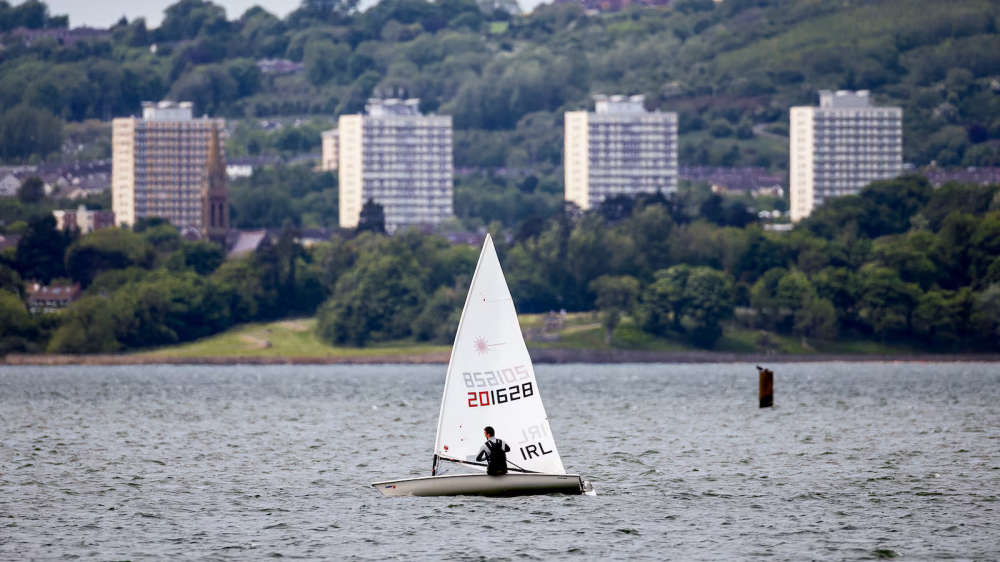 Forensic accountants to examine projected NI Water overspend, Kimmins announces
Forensic accountants to examine projected NI Water overspend, Kimmins announces
 Nine Northern Ireland schools targeted with threatening email thought to be hoax
Nine Northern Ireland schools targeted with threatening email thought to be hoax
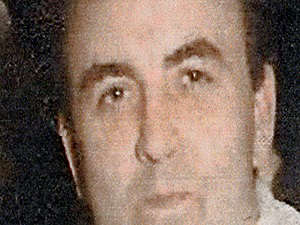 Exhumed remains not those of Disappeared victim Joe Lynskey
Exhumed remains not those of Disappeared victim Joe Lynskey
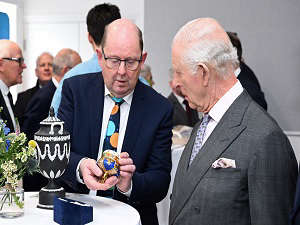 King and Queen conclude three-day visit to Northern Ireland
King and Queen conclude three-day visit to Northern Ireland
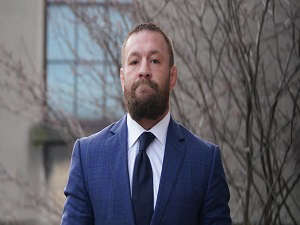 Conor McGregor seeks to introduce new evidence in civil rape appeal case
Conor McGregor seeks to introduce new evidence in civil rape appeal case